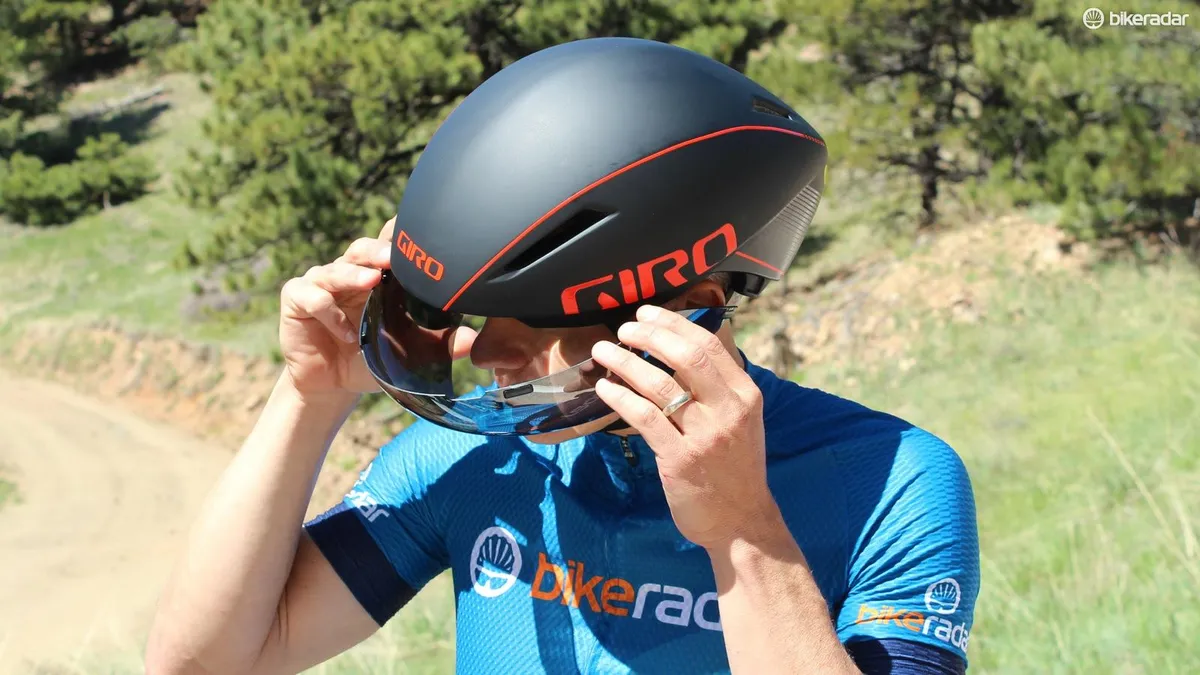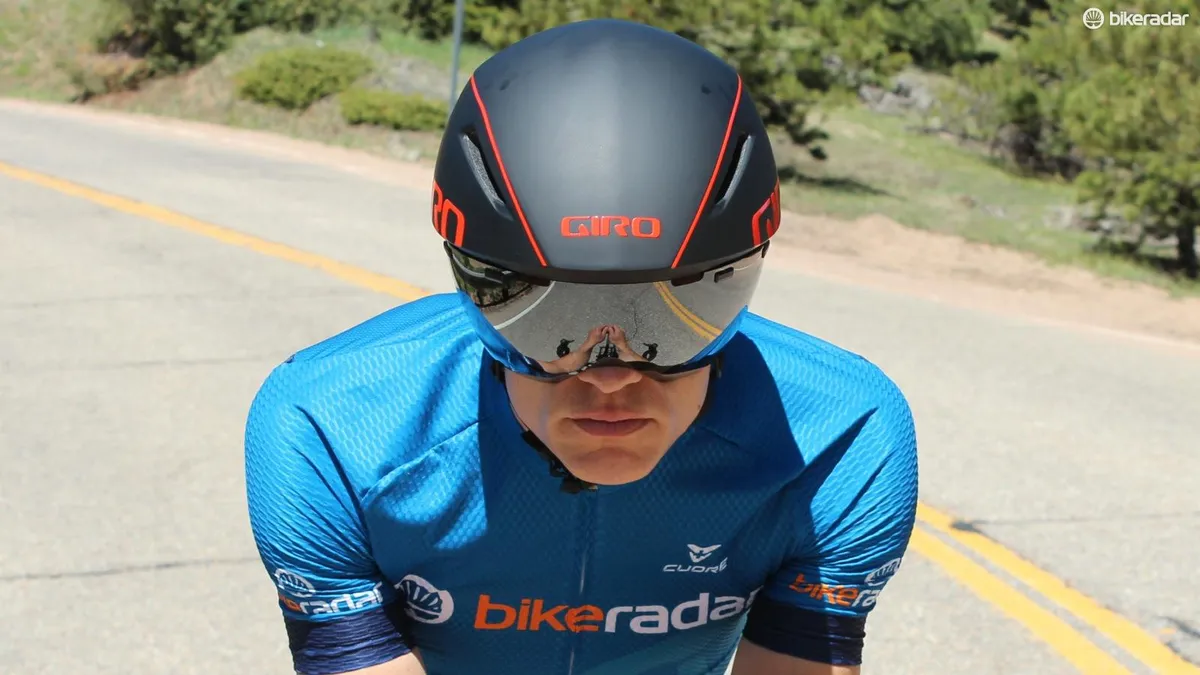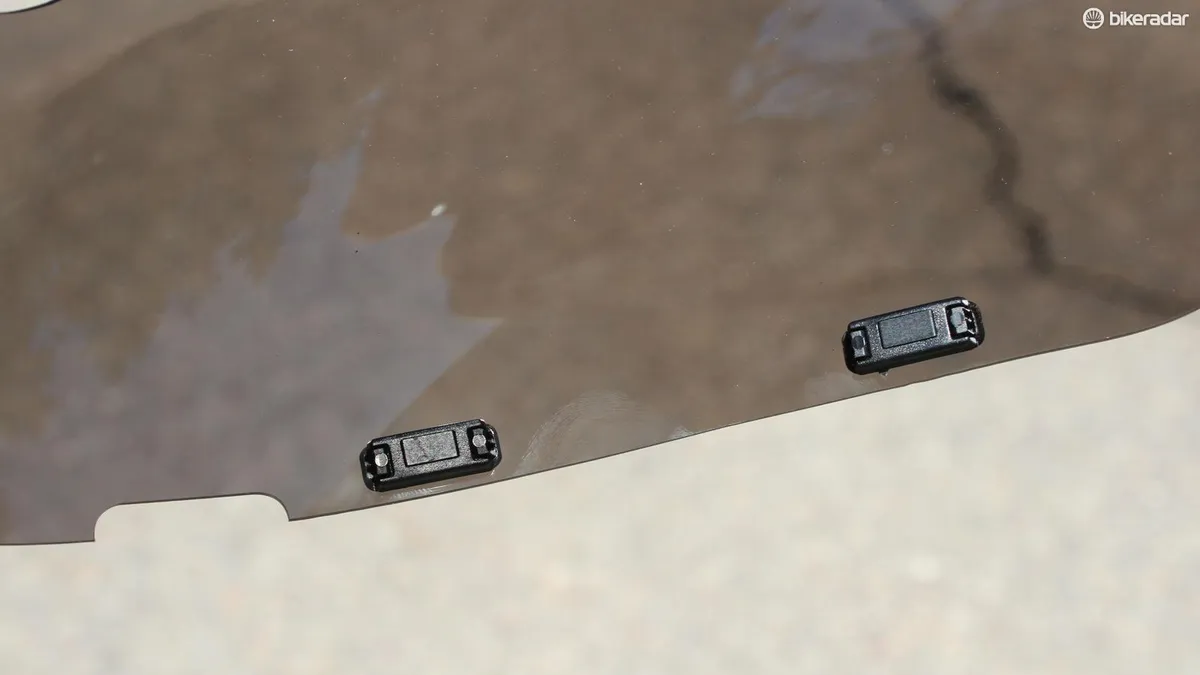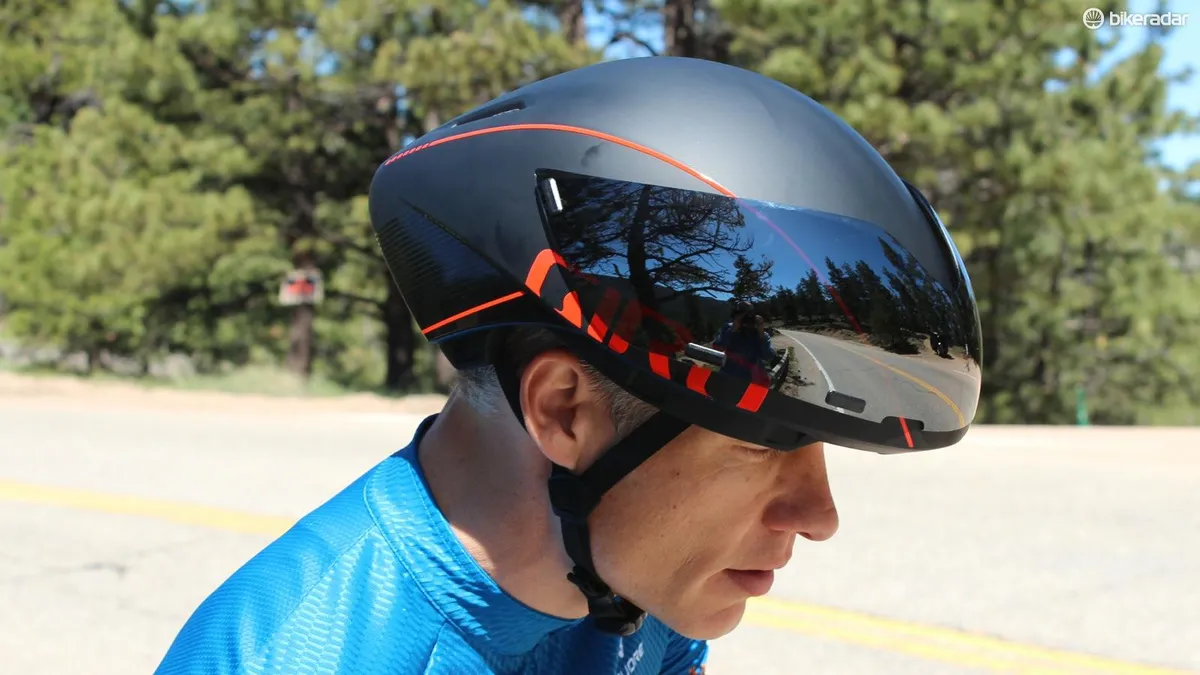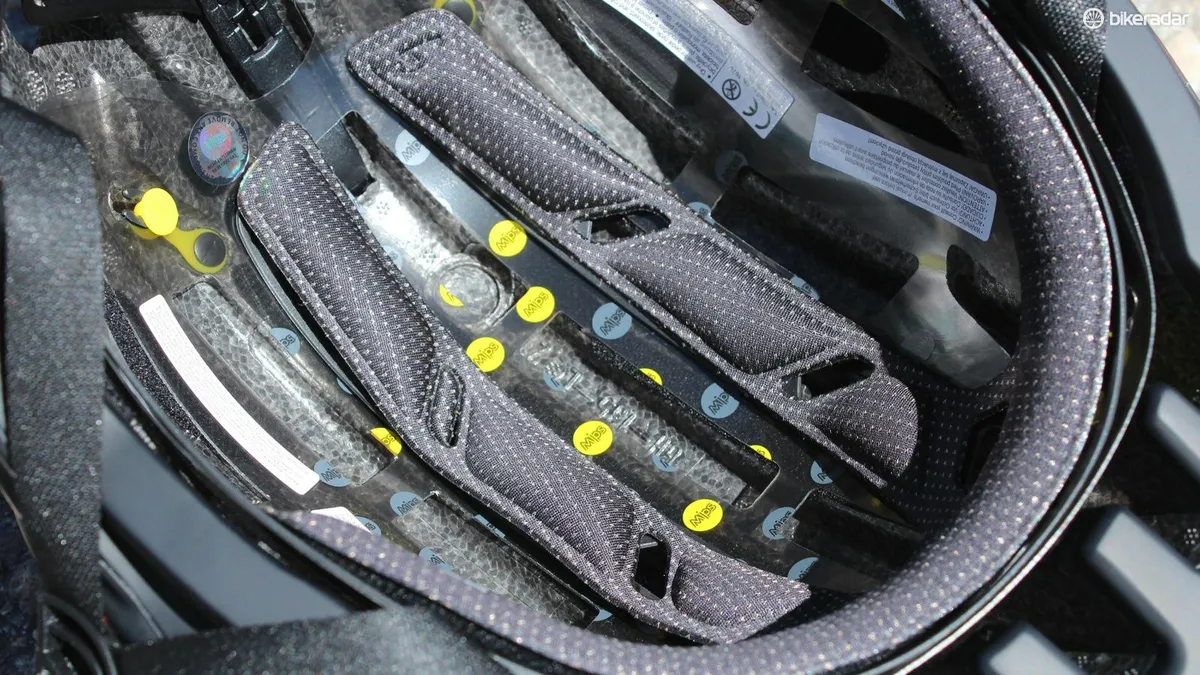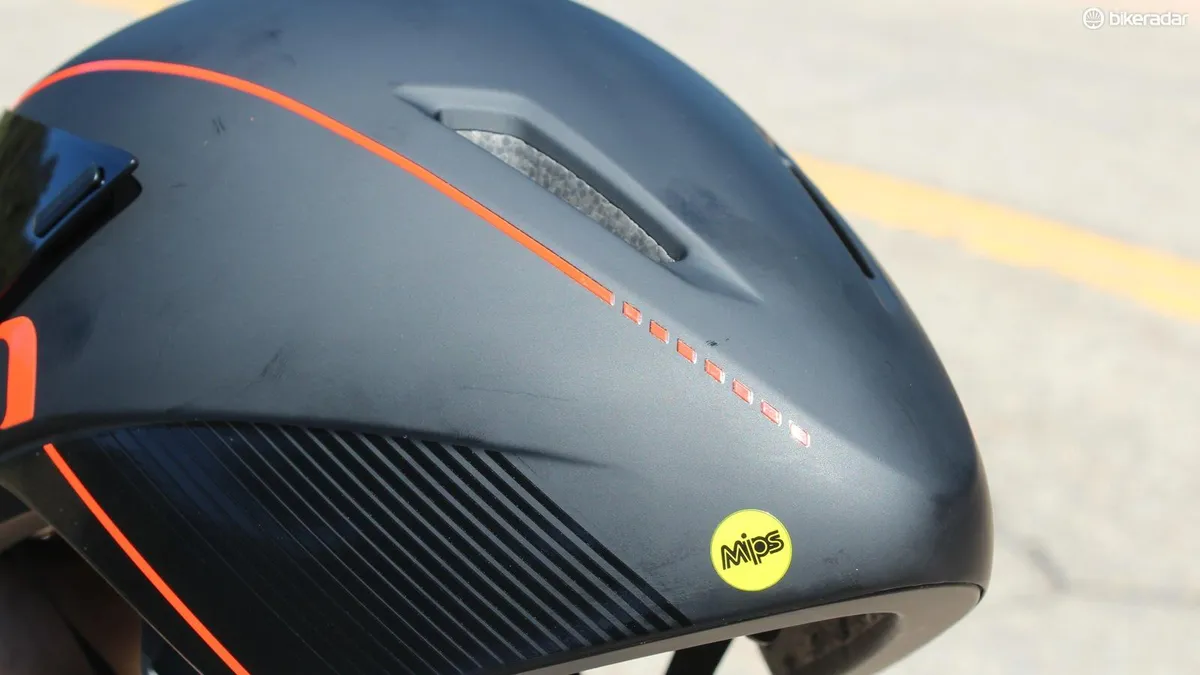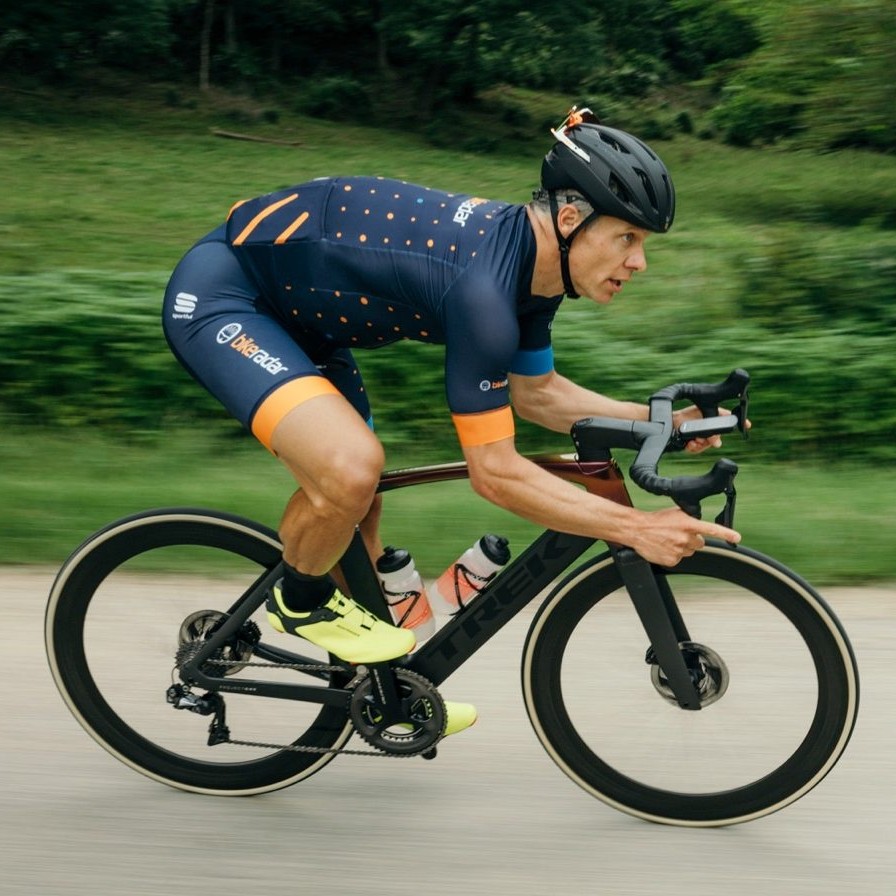Rohan Dennis wore one last July while blazing the fastest Tour de France prologue in history, and later this year two models of the Giro Aerohead MIPS time trial helmet will be available to the public. The $550 / £499 Aerohead Ultimate MIPS and $250 / £229 Aerohead MIPS are quite similar in design, with the former prioritizing aerodynamics and the latter featuring more ventilation.
Both Aerohead models are faster than anything Giro has produced, the company says, including the Selector, which Giro had long claimed to be the fastest commercially available time trial lid.
After developing the shape through various iterations via CFD, wind tunnels and rider testing, Giro settled on a shape that features an extended brow and a massive, wraparound Zeiss optics shield that attaches with magnets. While many TT helmets are somewhat difficult to get in and out of, the Aerohead goes on like a normal helmet, then then shield snaps in place and encloses the upper portion of the face and the ears — a key part of the aero design.
Giro tested the Aerohead against a number of other helmets in various wind tunnels and on the Los Angeles indoor velodrome, where the controlled environment allowed for real-world power-savings testing.
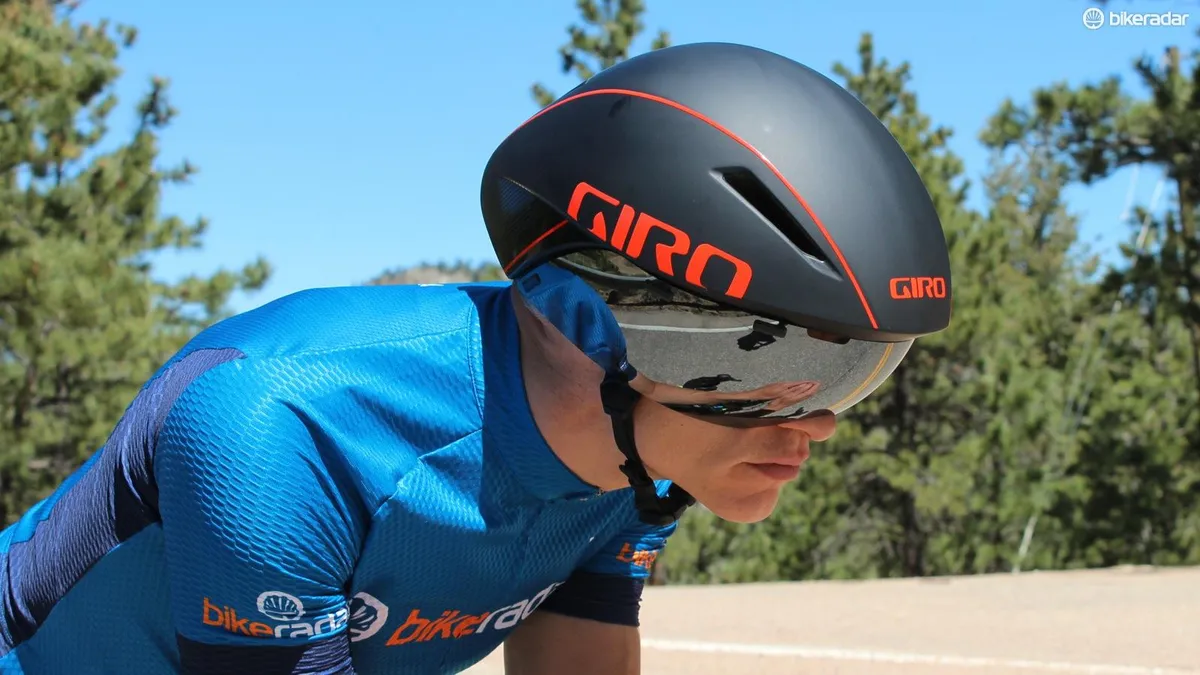
Giro used its old Advantage TT helmet as a baseline, which it measured at 1,709g of drag. The Air Attack Shield produced 1,699g, the Selector 1,693g and the Aerohead MIPS 1,685g and the Aerohead Ultimate MIPS 1,682g.
In the track testing, Giro claims, the Ultimate was 17 watts faster than the Advantage.
With the aerodynamic improvement from the enclosed design comes some extra heat. Giro measured the Aerohead Ultimate MIPS to be 22.3% warmer than the Air Attack Shield, and then Aerohead MIPS to be 14.3% warmer.
"Faster helmets are going to be warmer. That’s just the deal," said Giro's Dain Zaffke. "It’s always a game of compromise and trying to find the right balance."
For a Tour de France prologue, for instance, it's all about speed. Dennis' 2015 Tour prologue, for the record, was ridden at 55.44 kph. There are no vents in the Aerohead Ultimate MIPS, but two small gaps in the shield channel air up into the helmet, where it flows through channels over the top of the head. The rear of the Ulltimate is also semi-sealed with a Lycra cover, so riders can still adjust the RocLoc tightening system but air is kept from swirling through the area.
The Aerohead MIPS helmet, by contrast, features four vents atop the helmet and an open section under the tail for easy adjustment.
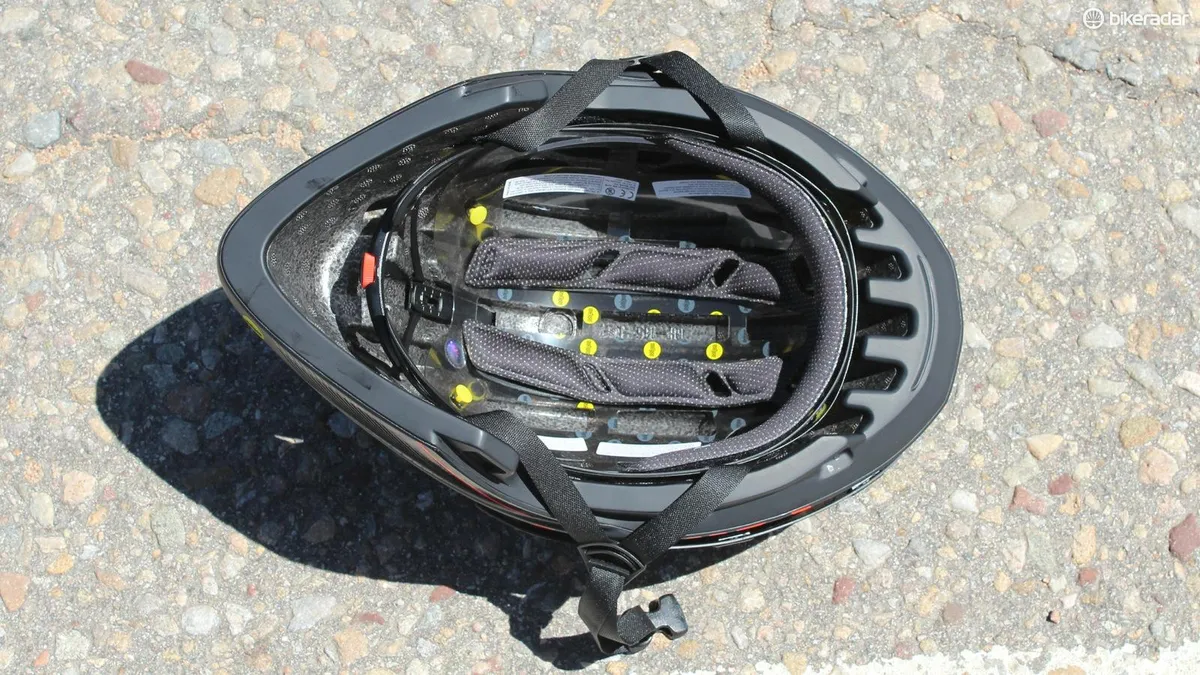
The other major difference is the shell material: the Aerohead Ulimate MIPS uses TeXtreme carbon fiber while the Aerohead uses the traditional plastic. The use of TeXtreme allows Giro to reduce the frontal area by 2%. "We have been wanting to use carbon on a shell for a long time," Zaffke said. "The unfortunate thing about a carbon weave on a standard helmet is that it adds weight. A lot of us think about carbon being light; this is true on bikes but not true with helmets."
Instead of a weave, TeXtreme uses flat carbon strands with a minimum of resin.
If the name Aerohead rings any bells, that's because it was used back in the late 80s. Greg LeMond raced an Aerohead to his famous Tour de France time trial victory over Laurent Fignon — with a speed that still stands as the fastest ever Tour time trial over 20km with an average speed of 54.55km.
Both helmets weigh a claimed 455g in size medium for a CPSC-approved design. The visor weighs 66g.
The helmets will be available beginning in August.
